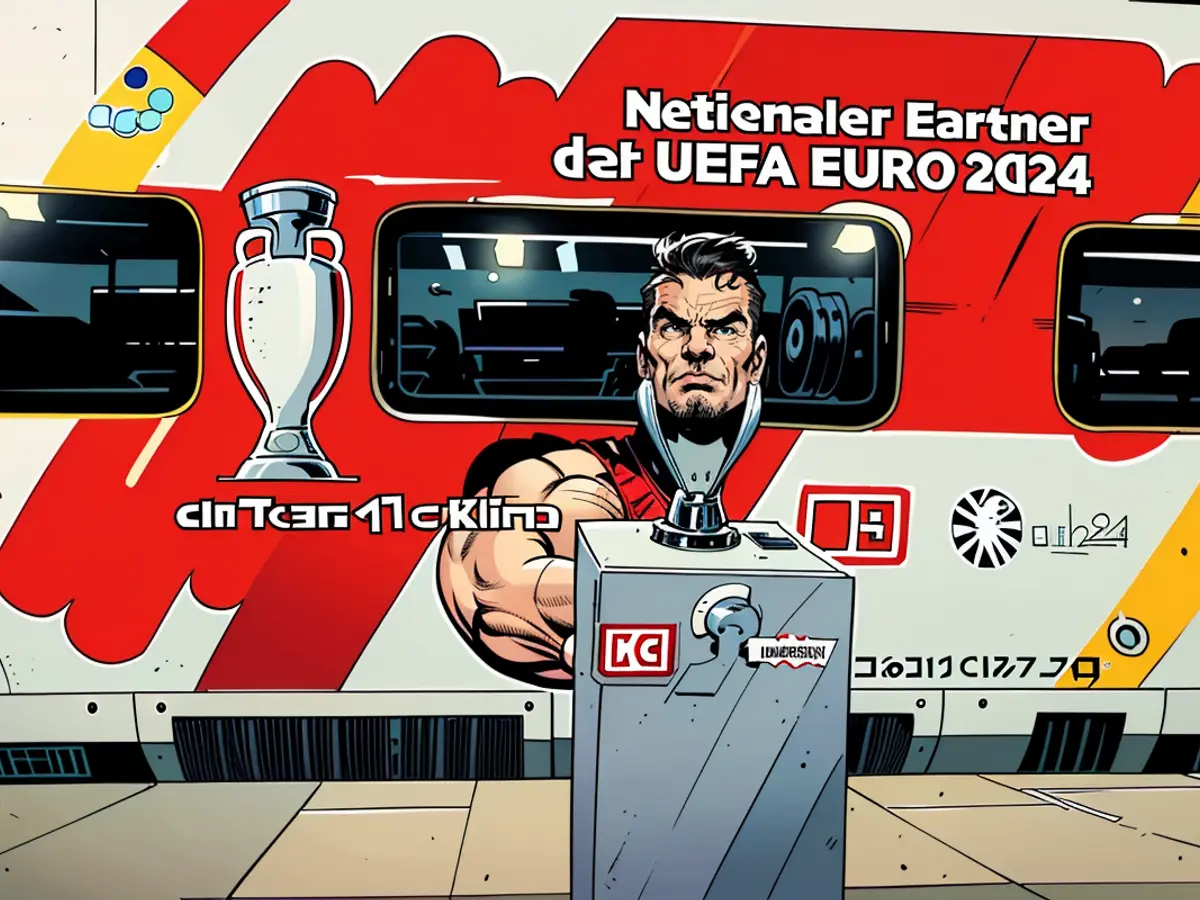Train Network Re-Examined - Transport and rail organizations boost services and workforce.
In North Rhine-Westphalia (NRW), railway and transportation associations are gearing up for the extended schedule and extra staffing in preparation for the European Football Championship (EURO). To manage the anticipated fan surge, the German Railways (DB) and associations Rhine-Sieg (VRS) and Rhine-Ruhr (VRR) will employ special trains, the German Press Agency reports.
A Euro-specific local transport line connects Cologne, Düsseldorf, Gelsenkirchen, and Dortmund from June 14 to July 14. Extra trips are planned, with 16 per day in each direction, says the railroad. Long-distance trains will also be used. 180 long-distance trains with 110,000 seats travel to Düsseldorf daily, and Cologne has 240 trains carrying 140,000 seats, while Dortmund has 140 ICE trains accommodating 90,000 seats each day, according to the DB.
Increased train and frequency services are also planned near the stadiums and fan events. This will enable fans to commute to and from the stadiums or public viewing areas even outside peak hours. For enhanced capacity, VRR and VRS are deploying more train sections. A VRS spokesperson states, "We're doing everything we can to offer maximum vehicle capacity."
More security personnel will be present at railway stations during the EURO. On match days, there will be 60 security personnel distributed in 15 four-person teams to assist customer service and the Federal Police, as per the Transport Ministry. Additionally, up to 450 volunteers will accompany fans and passengers on buses and trains in NRW. The DB is also boosting its pool of security staff at stations and in trains by around 20 percent, according to its statement.
In addition, "guide teams" with multi-language expertise are being deployed at Cologne, Düsseldorf, Dortmund, and Gelsenkirchen stations to aid fans and visitors. More staff will be placed at "welcome desks" to help international visitors. Plus, extra technicians are on standby to resolve escalator and elevator issues immediately.
Each EURO match ticket serves as a public transportation ticket valid in the entire host city network for 36 hours. In NRW, 20 of the 51 matches will occur, including group matches in each of the four NRW cities, an eight-final match in Düsseldorf, and a semi-final in Dortmund. VRR implements a Euro-specific line. The Transport Ministry plans to enlist more public transport and volunteers during the EURO.
Read also:
- To ensure smooth transportation during the EURO, German Railways (DB) and associations VRS and VRR are deploying special Intercity Express trains in North Rhine-Westphalia (NRW).
- The extended schedule and increased staffing are crucial in handling the influx of fans for the European Football Championship (EURO) in cities like Cologne, Düsseldorf, Gelsenkirchen, and Dortmund.
- In addition to special trains, German Railways has 180 long-distance trains with 110,000 seats traveling to Düsseldorf and 240 trains with 140,000 seats in Cologne daily.
- Dortmund also has 140 ICE trains accommodating 90,000 seats each day, contributing to the robust transport network in NRW.
- The German Press Agency reports that Rhine-Sieg (VRS) and Rhine-Ruhr (VRR) associations are adding more train sections to cater to the increased demand and fan surge during the EURO.
- Security measures will be strengthened during the EURO with up to 60 security personnel distributed at railway stations in 15 four-person teams and around 450 volunteers assisting fans and passengers.
- In line with the EURO, each match ticket serves as a public transportation ticket valid for 36 hours in the entire host city network, including Gelsenkirchen, Cologne, Düsseldorf, and Dortmund.
- The Ministry of Transport in North Rhine-Westphalia plans to enlist more public transport and volunteers to support the traffic and transport association VRR during the European Football Championship.
- As part of the enhanced services, German Railways (DB) is also boosting its pool of security staff and providing multi-language assistance at stations in Cologne, Düsseldorf, Gelsenkirchen, and Dortmund.








